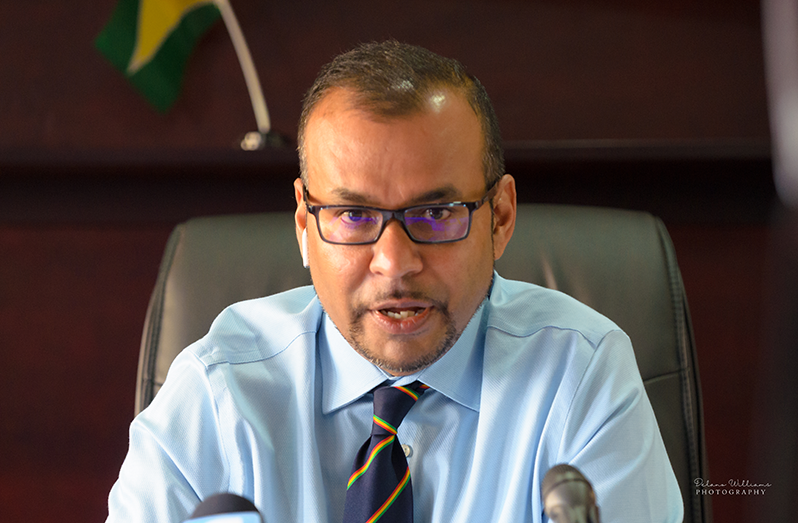By Vishani Ragobeer
AS part of the government’s efforts to strengthen ties with the diaspora, a $38M project is being finalised to encourage second and third generation Guyanese youth in the diaspora to volunteer their knowledge and skills.
According to the Foreign Secretary at the Ministry of Foreign Affairs and International Cooperation, Robert Persaud, the project is being crafted and rolled out in collaboration with the International Organization for Migration (IOM).
During a recent engagement with members of the media, Persaud highlighted that the aim of the project is to encourage young Guyanese in the diaspora to return to Guyana and volunteer their knowledge and skills. It is envisioned that these youth would be able to serve either the government, civil society, the private sector and/or Non-Governmental Organisations (NGOs).
“We don’t want to lose the second and third generation of Guyanese living overseas and missing out on the opportunities here and also to attract their skills, capital and to support what is taking place,” the Foreign Secretary emphasised.
While the allocation towards this project is concrete, the Guyana Chronicle understands that the components and logistics of the project are still being finalised. As such, it is not yet known how many youth in the diaspora will be targetted. With a population of less than a million people, Guyana, which sits on the edge of South America, has been losing some 30,000 persons annually due to emigration, said the Center for Strategic and International Studies (CSIS), which is based in Washington DC, in a recent report, following an analysis of the Guyanese diaspora. The CSIS report is a comprehensive analysis of the Guyanese diaspora and highlights some of the perennial challenges of brain drain and high emigration rate that Guyana faces.
For context, emigration is defined as the act of leaving a resident country or place of residence with the intent to settle elsewhere. And the CSIS report noted that Guyana’s socio-economic environment; the political climate, which the report deemed “unstable” and social unrest particularly influenced Guyanese educated elites to seek opportunities elsewhere.
The CSIS quoted a 2010 Aljazeera report titled “Guyana’s brain drain,” which stated: “The brain drain in this poor nation has been going on for many years as people emigrate to America, Canada, and Britain in search of a better life.”
This is evidenced by the findings in the CSIS report, which show that the Guyanese diaspora profile is classified as being an “educated and skilled” community. The Guyana Chronicle understands that harnessing the knowledge and skills of the Guyanese youth was one of the contributory factors that led to the creation of this $38M project.
Meanwhile, the Foreign Secretary highlighted that the project is one of the many projects that are externally funded, which add to the government’s efforts to pursue diaspora engagement. In fact, he highlighted that in this year’s national budget, an allocation of almost $50M was made to facilitate enhanced diasporic engagement. The government has also been working alongside the IOM to develop the Guyana Diaspora Engagement Strategy and the Plan of Action, which are expected to place specific emphasis on re-migration and the establishment of a well-functioning structure for re-migrants.
Guyana’s emerging oil and gas sector has opened doors for new areas of investment, while strengthening traditional sectors. In January, during an interview with US-based radio personality Farook Juman, President Irfaan Ali said there is “great potential” for the diaspora to bring their capital resources back home.
To this end, the Foreign Secretary clarified that the government’s focus on enhancing diasporic engagement is not meant to disadvantage Guyanese who live and work in the country; he emphasised that there is no competition between the two groups.
Instead, he said, “It is complementing the progress being made here, to support the vision and developmental drive to transform the country…. It is not giving preferential access or to disadvantage anyone here.”




.png)









